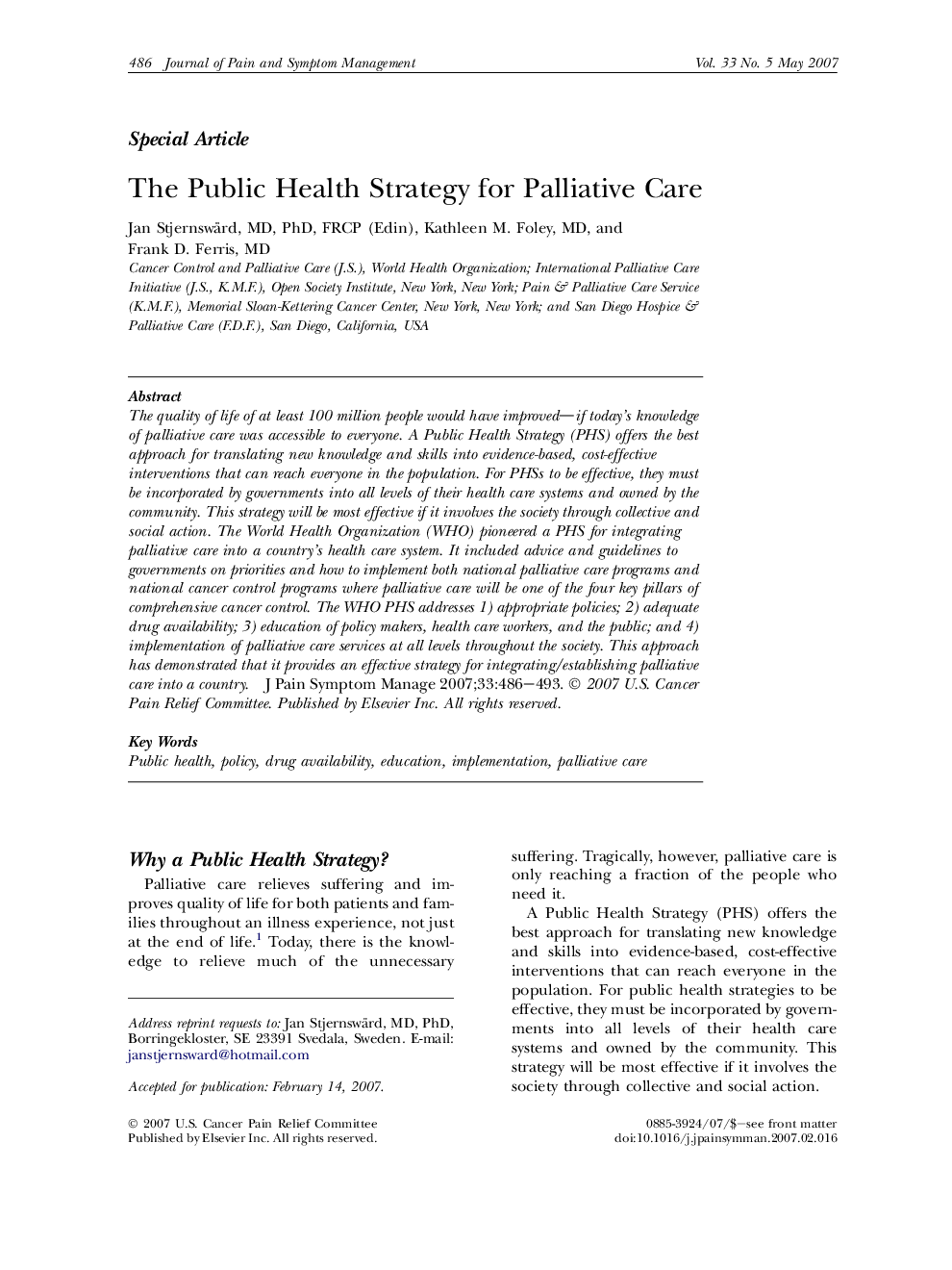| Article ID | Journal | Published Year | Pages | File Type |
|---|---|---|---|---|
| 2724765 | Journal of Pain and Symptom Management | 2007 | 8 Pages |
The quality of life of at least 100 million people would have improved—if today's knowledge of palliative care was accessible to everyone. A Public Health Strategy (PHS) offers the best approach for translating new knowledge and skills into evidence-based, cost-effective interventions that can reach everyone in the population. For PHSs to be effective, they must be incorporated by governments into all levels of their health care systems and owned by the community. This strategy will be most effective if it involves the society through collective and social action. The World Health Organization (WHO) pioneered a PHS for integrating palliative care into a country's health care system. It included advice and guidelines to governments on priorities and how to implement both national palliative care programs and national cancer control programs where palliative care will be one of the four key pillars of comprehensive cancer control. The WHO PHS addresses 1) appropriate policies; 2) adequate drug availability; 3) education of policy makers, health care workers, and the public; and 4) implementation of palliative care services at all levels throughout the society. This approach has demonstrated that it provides an effective strategy for integrating/establishing palliative care into a country.
